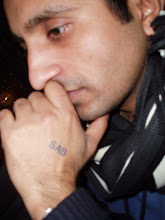Danish doctors are developing a smart bandage to monitor wounds as they heal.
Created for diabetics, the bandage would be studded with tiny sensors and send data to clinicians via the net.
Invented at the Diabetic Foot Clinic, in Aarhus, researchers believe it could help diabetics keep feet healthy and avoid the risks of amputation.
Diabetes can mean poor circulation and nerve damage so that even small cuts or blisters on feet can go unnoticed and develop into a serious ulcer.
Distant diagnosis
Diabetics are advised to check their feet daily and seek early medical attention if there are any signs of damage.
Without timely treatment and monitoring, patients with such ulcers may need to have their toes, feet or even their entire leg amputated.
With a mobile phone connected to the intelligent bandage, the patient could go on holiday to another continent and still be monitored
Dr Niels Ejskjaer
Following a foot injury two months ago, diabetic patient Paul Hansen has been forced to attend weekly check-ups at the Aarhus clinic, 60km away.
Dr Niels Ejskjaer, head of the Diabetic Foot Clinic, believes that an intelligent bandage would cut the need for such visits.
"Modern technologies should be able to help us monitor patients like Paul remotely, and let us know what his condition is without a hospital visit," he told the BBC's Go Digital.
"If sensors were built into the bandage that would mean we could have information about the wound as it heals," he said, "its temperature, humidity, and perhaps even the types of bacteria present."
"This would allow the bandage to stay on for much longer and would save on the cost of medical care by avoiding unnecessary hospital visits," said Dr Ejskjaer.
Medical data from the intelligent bandage could easily be sent to the clinic, via phone or the internet.
Advances in wireless technology would allow for medical check-ups from anywhere in the world.
"With a mobile phone connected to the intelligent bandage, the patient could go on holiday to another continent and still be monitored," Dr Ejskjaer said.
Remote Control
Currently the idea is at the concept stage.
Although researchers in Aarhus have connected temperature and humidity sensors to a computer chip, they are currently too large to be practical.
Doctor monitoring treatment remotely
Doctors could use portable devices to monitor treatment
But Dr Ejskjaer believes the intelligent bandage is an idea that is ripe for exploitation in the telemedicine systems of tomorrow.
Already, more conventional telemedicine projects are under evaluation in Aarhus.
These have attempted to replace hospital visits with remote check-ups from the patient's home, using digital cameras to capture pictures of their feet and phone or internet connections to transmit these to the clinic.
Local nurses must still visit patients, to supervise the process as well as remove and replace bandages.
But an intelligent bandage, if it could be developed successfully, would remove the need for home visits, though for now the prototype is missing an important component - a digital nose.
Whilst most of us try to avoid proximity with other people's smelly feet, for a diabetic foot doctor those cheesy odours speak volumes on the health of our soles.
"Without a smell detector in the intelligent bandage," said Dr Ejskjaer, "we might miss a developing infection, which could be an important hurdle to overcome in our particular branch of telemedicine."
Sunday, October 18, 2009
Subscribe to:
Post Comments (Atom)
















No comments:
Post a Comment